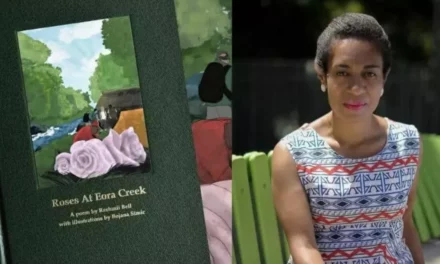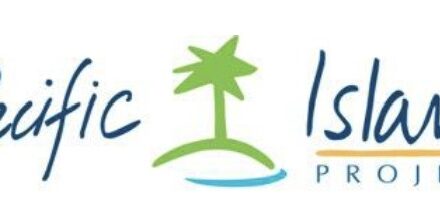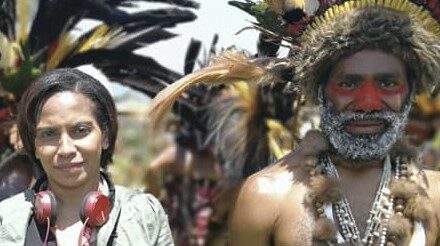The Rise, Fall and Future of Kokoda Tourism
By 2013 it was clear that that management of Kokoda tourism had clearly failed – there was no management database, no campsite booking system in place, no campsite development plan, no trail maintenance plan, no military heritage plan, no community development plan.
We therefore submitted the following paper on 2 February 2013 but failed to get a response from the relevant Ministers, the Australian High Commission, the DFAT Kokoda Initiative, or the PNG Kokoda Track Authority.
‘Papua New Guinea is the custodian of Australia’s Pacific War history. A place where our wartime relics have rusted in peace in remote jungle clad mountains for the past 70 years. The names of hitherto unknown places are emblazoned on Army, Navy and RAAF Battle Honours every Anzac Day – Coral Sea, Milne Bay, Kokoda, Buna, Gona, Sanananda, Finchafen, Lae, Wau, Shaggy Ridge, Bougainville and Wewak.
‘The Kokoda Trail is one of many jungles shrines littered with relics of desperate battles fought between Australian and Japanese soldiers in late 1942. It lay dormant in the minds of Australians for five decades after the war until Paul Keating became the first Australian Prime Minister to visit the village that bears its name.
‘Government interest in the preservation of the Kokoda Trail receded for another decade until Prime Ministers’ John Howard and Sir Michael Somare opened a significant memorial at the village of Isurava on the 60th anniversary of the campaign. The awareness of these two ceremonial occasions led to increasing numbers of Australians wanting to walk in the footsteps of the brave.
‘However it wasn’t until a public outcry over the threat to mine a large part of the trail that the Australian Government finally took more than a token interest in the area. The public were united in their opposition to the possible destruction of such an iconic part of our military heritage.
‘Unfortunately the Howard Government miscalculated and allocated responsibility for the preservation of the Kokoda Trail to the Department of Environment, Water, Heritage and the Arts (DEWHA). Most probably because the Heritage Division was responsible for the List of Overseas Places of Historic Significance to Australia which was established under the Environment Protection and Biodiversity Conservation Act 1999 (EPBC Act). The status of ‘Heritage’ has since been dropped from what is now the Department of Sustainability, Environment, Water, Population and Communities (DSEWPC). ‘Arts’ has since been added to the Minister’s responsibilities but does not show up in the current acronym.
‘DEWHA set out to use the Kokoda Trail as a gateway to ‘assist’ the PNG Government to develop a case for a World Heritage Listing of the Owen Stanley Range. This is indeed a noble objective and a great deal of good work has been undertaken in this regard. The objective should continue to be supported.
‘Unfortunately the Kokoda Trail has been subsumed into the broader thrust to achieve a World Heritage listing and the wartime historical value of the Kokoda campaign has been seriously eroded.
‘Since 2008, Kokoda seems to have been used as a subterfuge for DEWHA/DSEWPC to pursue an environmental agenda in Papua New Guinea. A Joint Agreement with an emphasis on global warming speak was signed with great fanfare but terms relating to the protection of our ‘military heritage’ did not rate a mention. One can only speculate how ‘joint’ the agreement was in the framing process.
‘Highly paid Canberra envirocrats with tax-free salaries and generous allowances were dispatched to advise/assist the PNG Government to ‘save’ the Kokoda Trail. It was the first trip to PNG for most of those involved. The trail quickly became a lucrative honey-pot for a coterie of anointed consultants who came, saw, held talk-fests, produced 5-point action plans – and left with a wallet full of booty.
‘The results speak for themselves. When the envirocrats arrived in 2008, 5621 Australians trekked Kokoda. After three years of ‘assistance’ resulting in a ten-fold increase in staff, a conga-line of consultants and more than $20 million of taxpayers’ money, the numbers decreased to 2914.
‘Projects initiated, without any reference to relevant PNG authorities or the trekking industry included the construction of massage parlours, a failed $3 million ‘Village Livelihood Project’ that has not produced a single dollar and a dysfunctional management structure. A couple of ‘case studies’ are attached.
‘But of more concern is Canberra’s patronising attitude towards PNG leaders and villagers. Their ‘chosen’ PNG ‘CEO’ was the first villager from the Kokoda Trail to graduate from the University of PNG. His salary was $25,000. His Australian counterpart was on a tax-free salary of $180,000 plus generous overseas allowances for working in Port Moresby.
‘The PNG ‘CEO designate’ was patronised as a ‘token Papuan’ by the envirocrats. He was flown to Canberra for indoctrination and hosted on a number of visits to various national parks. They even allowed his wife and small children to accompany him on at least one occasion. It was a subtle way of ensuring his acquiescence in dealing with ‘issues’ along the Kokoda Trail.
‘The ‘CEO designate’ watched as Australian ‘volunteers’ were flown in to do ‘track-work’ his people had been doing for centuries. He observed NGO’s on the AusAID drip using the name ‘Kokoda’ to give relevance to feel-good projects that would otherwise be unremarkable. He briefed consultants who earned more in a couple of weeks than he earned in a year.
‘He is now the CEO. But his salary has not changed and he has no entitlement to the generous allowances his DSEWPC ‘mastas’ enjoyed. The results of their talk-fests – glossy ‘Codes of Conduct’, nebulous ‘Licensing Conditions’ and fluffy ‘Strategic Plans’ remain as meaningless tokens to their presence. The lack of any legislation supporting management protocols for the Kokoda trekking industry; an obsolete website; a lack of integrity in the trek permit system; the lack of a campsite booking system; poor governance; and a complete failure to protect the welfare of local PNG guides, carriers and campsite owners are testimony to the failure of the Australian Government ‘assistance package’ since 2008.
‘ It seems we have learnt little from our colonial experiences in PNG.
‘Patronising white ‘mastas’ still exist – but in different forms. They dictate what is best for the ‘native’ population through Port Moresby based ‘capacity building’ programs, village ‘livelihood’ projects, 4-star hotel forums and 5-point plans. Pioneering Kokoda trek operators are regarded as ‘blackbirders’ and remote village workshops with local clan leaders are considered an unnecessary inconvenience.
‘AusAID funded NGO’s refer to a ‘cycle of poverty’ along the trail as a form of emotional blackmail for potential donors. The facts actually reveal a cycle of unprecedented wealth over the past decade as more than 30,000 trekkers have generated around $20 million for village communities. Nearby villages on adjoining mountain ranges have been ignored by the NGO community because they obviously don’t have the name ‘Kokoda’ attached to them.
‘One can only wonder why the Australian Government has not commissioned the University of Papua New Guinea to conduct research into the distribution of the wealth generated by the Kokoda trekking industry. How much is retained by the Seventh Day Adventist Church? How is the money distributed between various clans? How much is invested in village community development? How much is extorted by the ‘Moresby Mafia’?
‘Until we know the answers to these questions we will never be in a position to help them develop investment strategies. Clan leaders have no incentive to do this so long as Aid funded NGOs continue to patronise them with charitable handouts – no matter how well meaning.
| It is interesting to note that the Department of Veterans Affairs (DVA) has been allocated $10 million to establish a WWI interpretive trail in France and Belgium to commemorate the centenary of Anzac in 2015. It would seem logical that DVA would also be allocated responsibility for the protection of our WWII interpretive trail which is Kokoda. The corporate knowledge gained in the development of our WWI trail will most likely be lost if it remains in a separate Government department with such a wide range of responsibilities – none of which are related to our ANZAC heritage. |
‘DSEWPC has much to answer for. There is no evidence of a single sustainable outcome from their initiatives along the trail during their watch. Apart from safety projects at the Kokoda airfield and the Owers Corner road most of their $20 million Aid budget has boomeranged via Australian salaries, consultant fees and talkfests. It is also apparent that Australian managers unfamiliar with PNG soon find the frustrations of their working environment too difficult to handle. They then ‘manage’ their jobs through to the end of their tenures and mask their lack of achievement with reports, meetings and conferences regarding codes of conduct, licensing conditions and consultant liaison tasks.’




